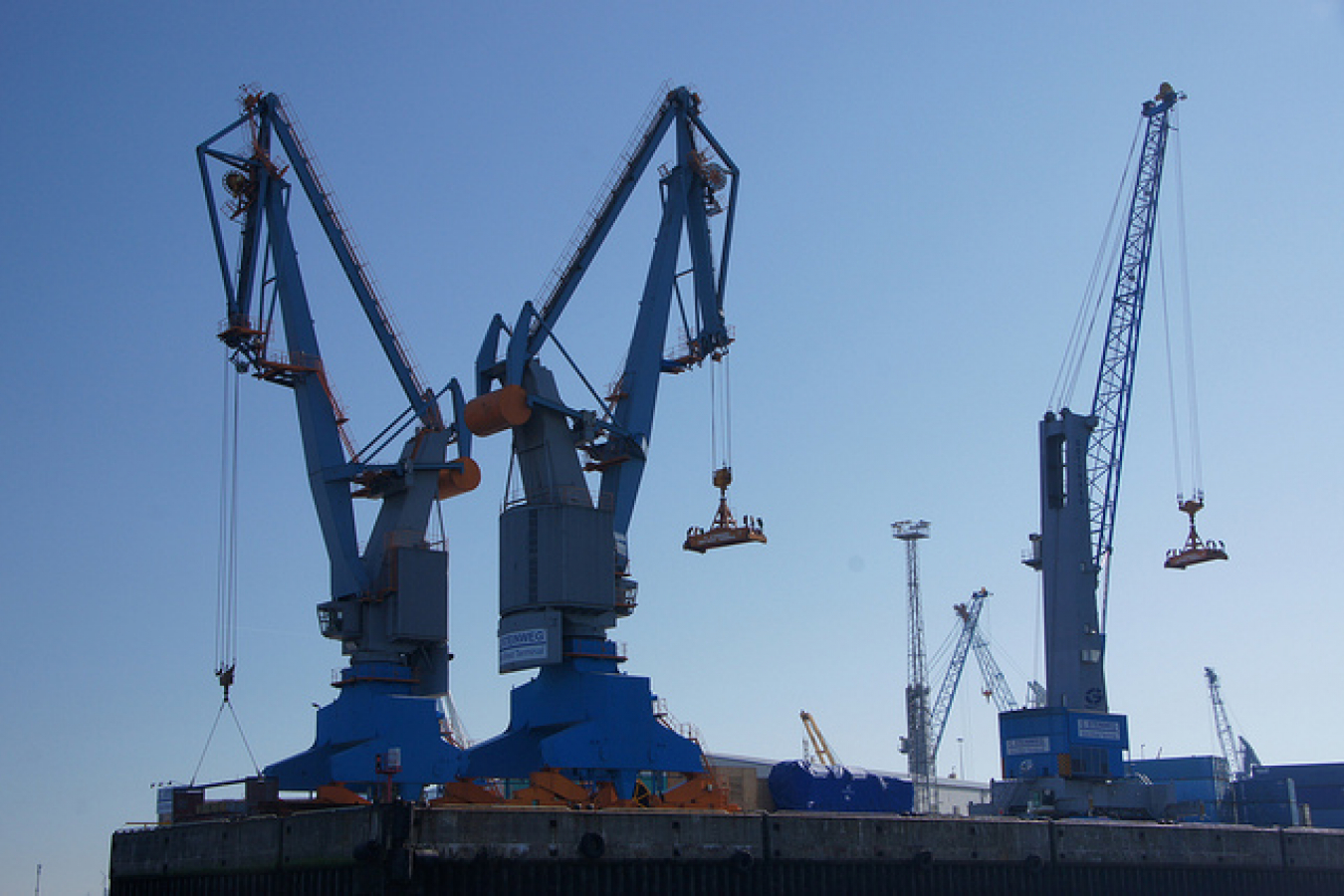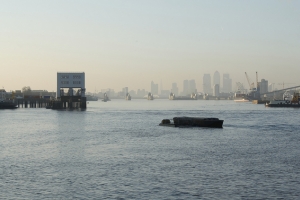Support migrant centric journalism today and donate

In an exclusive guest editorial for Expatica, MEP Cem Oezdemir, who was the first German of Turkish descent elected to the Bundestag, looks at the challenges Germany's new government will face integrating its immigrant communities.
"Germany is no immigration country" - this sentence was repeated like a mantra by members of several German governments until the end of the 1990s. Since then, even the conservative Christian Democrats have acknowledged a very different reality, although they do not miss an opportunity to emphasise that Germany is nevertheless not a "classical" immigration country. However, the official statistics speak for themselves. The demographics of a city such as Stuttgart are typical: with 600,000 inhabitants, every third person is a first or second-generation migrant. It remains to be seen whether the grand coalition of Christian and Social Democrats under Angela Merkels leadership will meet the integration challenges which arise from Germany definitely being an immigration country, whether "classical" or not.
With the change to a coalition government of Social Democrats and Greens in 1998, immigration and integration became important and controversial topics of discussion. Several events since then have not only formed a backdrop to, and influenced, public debate. These events have also underscored the problems at the heart of the integration debate which is more urgent than ever, not only in Germany but also in other European countries, as the riots in France have made clear. In the German context this events are the immigration law, the reform of the citizenship law, the aftermath of the terrorist attacks of 11 September 2001, and the alarming results of the OECD's Programme for International Student Study (PISA).
An important first step
The German immigration law came into effect 1 January 2005. The most relevant social organisations, ranging from churches to labour unions, supported the bill. However, the innovative points system (based on the old Canadian model) fell victim to the negotiations between the red-green government and oppositional Christian Democrats, who had the majority in the upper chamber.
In the course of these negotiations, the legislation undeniably lost substance. Yet it introduced obligatory integration and language courses. Through this measure, it has been rightly acknowledged that knowledge of the German language is an unconditional prerequisite for successful integration, both in terms of the labour market and for the sake of migrant children, whose educational chances increase when their parents are familiar with German. And finally, despite all the criticism of the legislation, one must bear in mind its symbolic value and the fact that it represents an important first step.
Pessimistic discourse
However, the immigration law also demonstrates clearly how difficult it is for Germany to emphasise the advantages of welcoming motivated and highly qualified immigrants - and to change the image of migrants in Germany. If only highly qualified Turkish immigrants had come into Germany, this would probably have dispelled several common stereotypes about Turks. The important of this symbolism cannot be overstated, considering the still strikingly pessimistic tone of integration discourse in Germany.
The citizenship law of 2000 was also a very important step towards greater integration. For the first time, it introduced an ius soli ("right of the soil") component, under which citizenship results from being born in a particular country. Given Germany's archaic citizenship tradition, with a legal entitlement to naturalisation only introduced in 1993, this marked a milestone. Since 2000, the native-born children of foreigners, under certain conditions, become German citizens by birth - about 40,000 of them annually.
Preventing participation
Although this reform was an important step, the initial proposal went much further, as it included the possibility of double citizenship. However, under pressure from the Christian Democrats, this provision was dropped. This has prevented many migrants from applying for naturalisation. It is true that in 2000, the total number of naturalisations reached a high at 186,000, but since then the figure has been declining. The ban on double citizenship affects Turks in particular (given that Turkey is outside the EU) by preventing from taking a step which is so important for full political participation.
The ban on double citizenship is absurd, not least because about 40 percent of those who have been naturalised since 2000 have been allowed to keep their former citizenship for certain reasons. The argument that one can only be loyal to one state therefore seems to be groundless. It should also be noted that double citizenship was tolerated before 2000.
Ignored by the establishment
A more flexible attitude towards double citizenship would not only help to increase the number of naturalised migrants, but would also thereby encourage their passive and active political participation. As potential voters, they could articulate their interests more effectively. It is thus not surprising that voters of Turkish origin are not seen as one group with common interests. They are more or less ignored by the two main parties (the Christian Democrats and Social Democrats), and they have failed to organise themselves to speak with one voice. Despite political, ethnic and religious differences among Turkish migrants, they also have common interests - in, for example, educational opportunities for their children.
We are, however, far from the American situation, where candidates explicitly and publicly fight for the votes of Hispanics and other migrant communities who are seen as full citizens regardless of their ethno-religious background, a republican tradition which is not yet fully developed in Germany. Could anybody imagine a German Chancellor giving a weekly radio address in the language of the country's largest immigrant community (as has happened in the United States)?
Confronting suspicion
The terrorist attacks of 11 September 2001 have brought the integration of Muslim migrants and their organisations to the forefront. If Muslims spoke with one voice, they could more easily confront the general suspicion they face from time to time. They have not yet, however, succeeded in establishing one or two representative and integrative umbrella associations. The German authorities need an acknowledged and accepted representative body of Muslims as a prerequisite for introducing Islamic religious education in schools - taught in the German language and under the supervision of the state - and for the education of Imams at German universities.
These measures are a necessary step to "naturalise" Islam in Germany. Under no circumstances should the majority fall into the trap of building up an artificial polarity between "being German" and "being Muslim". One can, of course, be German and Muslim at the same time, even though some have difficulties with this idea. Germany, as well as other European states, would be well advised to build a more relaxed relationship with moderate Muslims and their organisations, and help them find their place in mainstream society. And Muslims should do everything possible to identify and dissociate themselves from the black sheep within their communities. But to reach out to all migrants the new government is well advised to encourage and strengthen the moderate, secular and progressive parts of the Muslim community.
Doomed to fail
Furthermore, the results of the PISA study underline that the educational situation of migrants is one of the most urgent problems for many European countries, in particular for Germany. The study found that in no other country was the relationship between the socio-economic status of parents and the educational success of their children as strong as in Germany. This applies to all children from a blue-collar background, but especially to those of migrant families with a low educational background, as they lack the necessary resources to support their children adequately. Any integration efforts are doomed to fail when the educational situation of migrant children is not sustainable.
It is no question that the integration of migrants will only succeed when we offer opportunities and make demands at the same time. But for far too long, we have ignored the fact that the first generation of guest workers who came from Turkey, Italy and other southern European countries simply could not provide the educational support needed to help their children move up the social ladder. The result is that we have too many second-generation migrant children leaving school without a degree and too few migrants in top positions who could serve as positive role models. If there is one main conclusion to draw from the German experience, it is that education is the most important key to the successful economic, social and political integration of migrants.
And as education is an area where politics definitely counts - whether in relation to the organisation of pre-school care, the school system, the qualification of teachers, and the acquisition of languages - Germany would be well-advised to realise the potential benefits of migration and integration, and therefore to do everything possible to foster more equality of opportunity and intergenerational mobility. The new government's success or failure will, last but not least, be assessed by its efforts to improve the educational opportunities of children with a migration and blue collar background.
Cem Özdemir has been a Member of the European Parliament for the Greens/EFA Parliamentary Group since 2004. He was born in 1965 in Bad Urach in the southern German state of Baden-Württemberg and is the son of Turkish immigrants. A member of the Green party since 1981, he was elected in 1994 to the German Parliament as the Bundestag's first-ever member of Turkish descent. He served two legislative terms until 2002 concurrently as member and Speaker on Migration Affairs for the Green Parliamentary Group, and worked to pass Germany's new citizenship laws that came into force in 2000. In 2003 he was a Transatlantic Fellow of the German Marshall Fund of the United States in Washington and in Brussels.





















